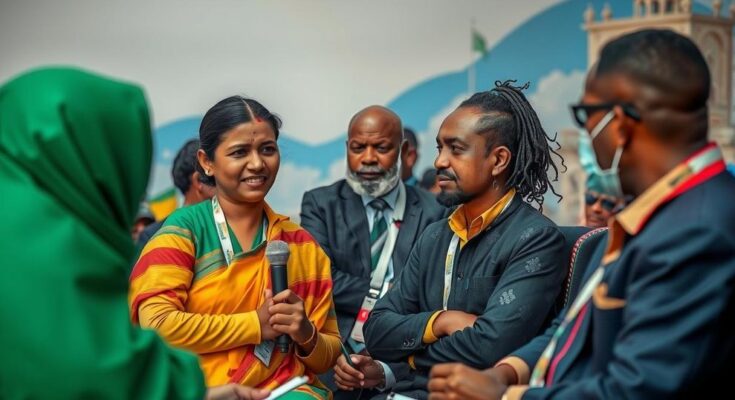Libya seeks to hire more Bangladeshi workers, including professionals like doctors and engineers, to aid in its development. In a meeting with Chief Adviser Professor Muhammad Yunus, Ambassador Abdulmutalib SM Saliman discussed the contributions of Bangladeshis in Libya and invited students to study in Libyan universities. Both nations aim to enhance bilateral relations and address issues like human trafficking.
Libya has expressed a keen interest in recruiting additional Bangladeshi workers, particularly in the sectors of healthcare and engineering, to support its developmental aspirations. During a recent meeting, the Libyan Ambassador to Bangladesh, Abdulmutalib SM Saliman, met with Chief Adviser Professor Muhammad Yunus, where he highlighted the vital contributions of the Bangladeshi workforce to Libya’s society, especially in agriculture. Ambassador Saliman acknowledged the challenges faced by Bangladeshi doctors regarding salary issues and expressed optimism for resolution following ongoing reforms in Libya. The ambassador also extended an invitation to Bangladeshi students for enrollment in Libya’s prestigious higher education institutions. Chief Adviser Yunus emphasized the necessity for both nations to collaborate in combating illegal migration and human trafficking, asserting, “We don’t support human trafficking. A lot of people are suffering for this. We should work together to stop this.” Additionally, he inquired about the possibility of Bangladesh importing oil from Libya to foster mutual economic benefit. Ambassador Saliman underscored the importance of re-establishing air connectivity between Libya and Bangladesh, requesting cooperation from Bangladeshi authorities to facilitate this initiative. This dialogue between the two countries signals a commitment to enhancing bilateral relations and increasing opportunities for trade and investment.
The relationship between Libya and Bangladesh has been historically characterized by significant labor exchanges, with many Bangladeshis working in various sectors of the Libyan economy. The current effort to recruit more Bangladeshi workers highlights Libya’s need for skilled labor to aid in its reconstruction and development following years of political instability. This initiative not only addresses Libya’s labor shortages but also presents Bangladeshi workers with international employment opportunities. Furthermore, the call for academic cooperation between Bangladeshi students and Libyan universities reflects Libya’s strategic interest in fostering educational ties.
In conclusion, Libya’s initiative to recruit more Bangladeshi professionals, alongside inviting students to its universities, marks a significant step towards strengthening bilateral relations. Both nations are encouraged to address pressing issues such as illegal migration and salary concerns for expatriates while exploring trade opportunities, including oil imports from Libya. This mutual collaboration is essential for fostering economic prosperity and enhancing social stability in both countries.
Original Source: www.tbsnews.net




